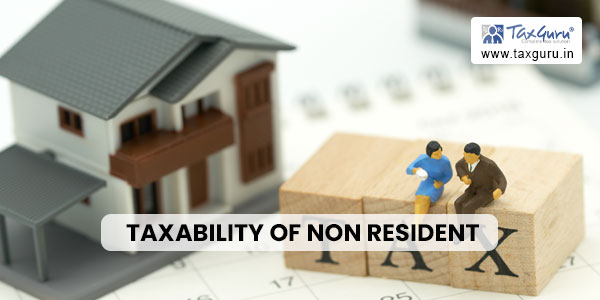Now Reading: Dubai Real Estate: 5 Helpful Tax Insights For Luxury Property Buyers
-
01
Dubai Real Estate: 5 Helpful Tax Insights For Luxury Property Buyers
Dubai Real Estate: 5 Helpful Tax Insights For Luxury Property Buyers

Table of Contents
Tax Insights: Dubai’s real estate market has long been a beacon for luxury property buyers, offering a blend of opulence, innovation, and investment potential. From sprawling villas in Emirates Hills to sleek penthouses in Downtown Dubai, the city’s properties cater to high-net-worth individuals seeking exclusivity and long-term value. However, navigating the financial landscape of purchasing luxury real estate in Dubai requires a clear understanding of the tax environment.
While Dubai is renowned for its tax-friendly policies, there are critical nuances that buyers must grasp to optimize their investments. This article explores five essential tax insights to empower luxury property buyers in making informed decisions.
1. No Personal Income Tax on Property Gains
One of Dubai’s most attractive features for property investors is the absence of personal income tax, including capital gains tax on property sales. Whether you purchase a luxury villa or a high-rise apartment, any profit made from selling the property is entirely tax-free for individuals. This policy is a cornerstone of Dubai’s appeal as a global investment hub, allowing buyers to retain the full value of their returns.
For luxury property buyers, this means greater flexibility in planning long-term investments. For instance, purchasing a premium property in areas like Palm Jumeirah, where property values have historically appreciated, can yield significant profits without the burden of tax liabilities. However, buyers should note that while individuals are exempt, businesses or entities purchasing properties for commercial purposes may face different tax considerations, such as corporate tax, which was introduced in the UAE in 2023.
To maximize this benefit, buyers should focus on properties in high-demand areas with strong appreciation potential. Consulting with a financial advisor to align property purchases with broader wealth management goals can further enhance the advantages of this tax-free environment.
2. Understanding Property Transfer Fees

While Dubai does not impose capital gains tax, buyers must account for property transfer fees when purchasing real estate. The Dubai Land Department (DLD) charges a standard transfer fee of 4% of the property’s purchase price, payable at the time of ownership transfer. For luxury properties, which often carry multimillion-dirham price tags, this fee can represent a significant upfront cost.
For example, a AED 10 million villa would incur a AED 400,000 transfer fee. Both the buyer and seller typically split this fee equally, though this can be negotiated in the sale agreement. To avoid surprises, luxury buyers should factor this cost into their budget and clarify the fee-sharing arrangement during negotiations. Additionally, some developers may offer promotions that cover the transfer fee for off-plan properties, which can be a valuable saving for high-end purchases.
Buyers should also be aware of potential additional administrative fees, such as registration costs, which are generally minimal but can vary depending on the transaction. Working with a reputable real estate agent can help ensure transparency and accuracy in calculating these costs.
3. Value Added Tax (VAT) on Commercial Properties
While residential properties in Dubai are generally exempt from Value Added Tax (VAT), commercial properties, including some luxury assets used for business purposes, are subject to a 5% VAT. This distinction is critical for buyers considering mixed-use developments or properties intended for rental income generation. For instance, a luxury apartment purchased for personal use is VAT-exempt, but the same apartment leased commercially could trigger VAT obligations.
For high-net-worth individuals investing in Dubai’s luxury market, this creates an opportunity to strategically select properties based on their intended use. Buyers planning to rent out their properties should register for VAT if their annual taxable supplies exceed AED 375,000, as mandated by the UAE Federal Tax Authority. This registration requires maintaining accurate financial records and filing regular VAT returns, which can add administrative complexity.
To navigate this, buyers should consult tax professionals to assess whether their investment strategy aligns with VAT exemptions or obligations. For those focused on residential use, sticking to properties designated for personal occupancy can simplify the tax process while preserving Dubai’s tax-friendly appeal.
4. Corporate Tax Implications for Investment Entities
In June 2023, the UAE introduced a federal corporate tax at a rate of 9% on business profits exceeding AED 375,000. While this does not directly affect individual buyers, it has implications for those purchasing luxury properties through corporate entities, trusts, or holding companies a common strategy among high-net-worth investors for asset protection and estate planning.
If a property is held by a company and generates rental income or is sold for a profit, the entity may be subject to corporate tax on those earnings. For example, a luxury property leased out through a corporate structure could see its rental income taxed if it exceeds the threshold. Additionally, expenses related to property maintenance, management, or financing may be deductible, potentially reducing the taxable income.
Buyers using corporate structures should work closely with tax advisors to structure their investments efficiently. This might include exploring exemptions for certain free zone entities or optimizing deductions to minimize tax exposure. For individuals, holding properties directly rather than through a company can often bypass these complexities, preserving the tax-free benefits of personal ownership.
5. Tax Benefits of Free Zone Properties
Dubai’s free zones, such as Dubai International Financial Centre (DIFC) and Dubai Multi Commodities Centre (DMCC), offer unique tax advantages for luxury property buyers. Properties in these zones are often exempt from certain local taxes and fees, and businesses operating within free zones may benefit from 0% corporate tax for a specified period, depending on the zone’s regulations. For high-net-worth individuals, free zone properties can be an attractive option for both residential and investment purposes.
For instance, DIFC is home to premium residential towers and commercial spaces, offering a sophisticated lifestyle alongside tax incentives. Buyers purchasing properties in these zones for personal use still benefit from the absence of personal income tax, while those investing through businesses can leverage free zone tax exemptions to enhance returns.
However, free zone properties come with specific ownership restrictions, such as limitations on foreign ownership in some cases, and buyers must ensure compliance with zone-specific regulations. Engaging a legal or tax consultant familiar with free zone policies can help buyers maximize these benefits while navigating any regulatory nuances.
Strategic Planning for Luxury Property Purchases

To fully capitalize on Dubai’s tax-friendly environment, luxury property buyers should adopt a strategic approach. First, conducting thorough due diligence on the property’s location, potential appreciation, and intended use can align the purchase with tax benefits. For instance, focusing on residential properties in high-growth areas like Dubai Marina or Business Bay can optimize returns in a tax-free capital gains environment.
Second, buyers should budget for upfront costs like transfer fees and potential VAT obligations, particularly for commercial or mixed-use properties. Engaging professionals, such as tax advisors and real estate agents, can provide clarity on these costs and help negotiate favorable terms with developers or sellers.
Third, understanding the implications of ownership structures is crucial. While individual ownership is straightforward and tax-efficient for personal use, corporate structures may offer benefits for estate planning or commercial investments but come with corporate tax considerations. Buyers should weigh these options based on their financial goals.
Finally, exploring free zone properties can add another layer of tax optimization, particularly for those investing through businesses. By combining these strategies, buyers can position themselves to maximize wealth while enjoying Dubai’s luxurious real estate offerings.
Conclusion
Dubai’s real estate market continues to captivate luxury property buyers with its blend of extravagance and financial advantages. The absence of personal income tax, including capital gains, creates a compelling environment for wealth preservation. However, understanding key tax considerations such as property transfer fees, VAT on commercial properties, corporate tax for investment entities, and free zone benefits is essential for making informed decisions.
By leveraging these five tax insights and working with experienced professionals, buyers can navigate Dubai’s market with confidence, ensuring their investments are both financially rewarding and aligned with their lifestyle aspirations. Whether you’re eyeing a beachfront mansion or a skyline penthouse, Dubai’s tax-friendly policies make it an unparalleled destination for luxury real estate investment. Tax Insights
read more: Dubai Property Tax: 6 Developer Deals That Lower Buyer Costs






















